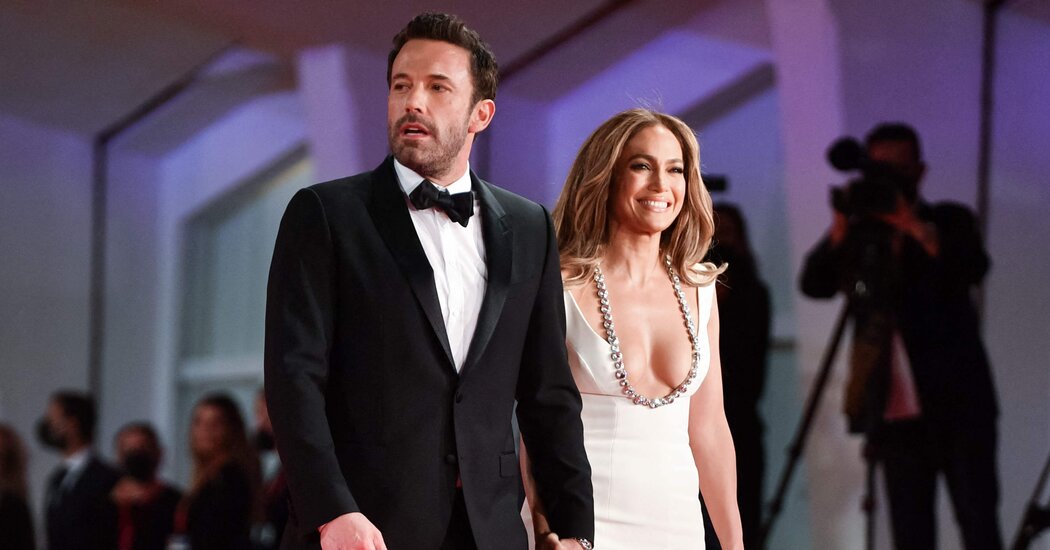
Yes, it’s sometimes complicated. My daughters have my first husband’s last name. (My opposition to the patriarchy succumbed to my reluctance to saddle another generation of women with my awful last name.) I have my last name. My husband has his. Buying plane tickets or showing up for parent-teacher conferences can be confusing. And I suspect if I didn’t live in a deep-blue coastal city, there’d be more raised eyebrows.
The idea of taking a husband’s last name always made me uncomfortable, reminding me of “The Handmaid’s Tale.” In Margaret Atwood’s Gilead, the handmaids, who exist to carry the babies of the elites, are stripped of anything that identifies them as individuals, including their names. They become just “of” the first name of their commanders: Offred, Ofglen, Ofwarren.
By changing her name — to Jennifer Muniz in a previous marriage and now to Jennifer Affleck — J. Lo is aligning herself with the majority of women in America. In the United States, only about 20 percent of women have kept their maiden names in recent years, according a 2015 analysis by The Upshot.
If you believe a 2003 “Access Hollywood” interview, changing her name to Ben’s has long been J. Lo’s plan. But the early aughts were a different time. In 2003, Donald Trump was a failing casino owner and tabloid mainstay. Covid had not yet arrived to lay bare the sexism of the household division of labor and flush millions of women from the work force. Roe v. Wade was the settled law of the land.
Maybe the question of whether or not a pop star-slash-global-brand changes her last name feels unimportant — or, in an era where Hillary Rodham Clinton ditches her maiden name (in some contexts) and Amy Coney Barrett keeps hers, politically insignificant. Between the recent Supreme Court decision, and #MeToo, and the prospect of attacks on contraception and same-sex marriage, feminists have bigger fish to fry.
But these gestures matter. Names confer identity. And married women continue to give theirs up, while married men rarely reciprocate. No matter what else changes, that power imbalance endures. Dr. Rachael Robnett, an associate professor in the psychology department at the University of Nevada Las Vegas, told me in a telephone interview that it reflects “men’s greater status and power in relationships, and also in society.”




